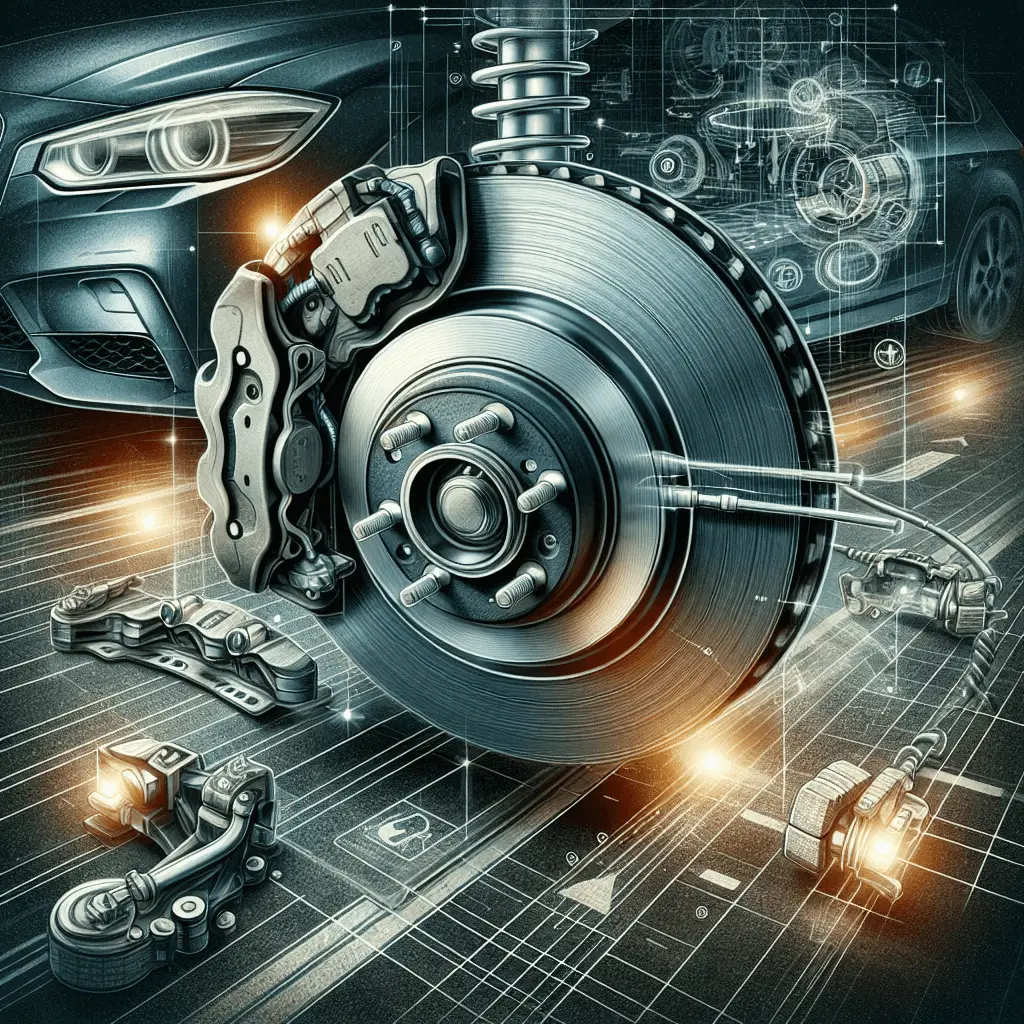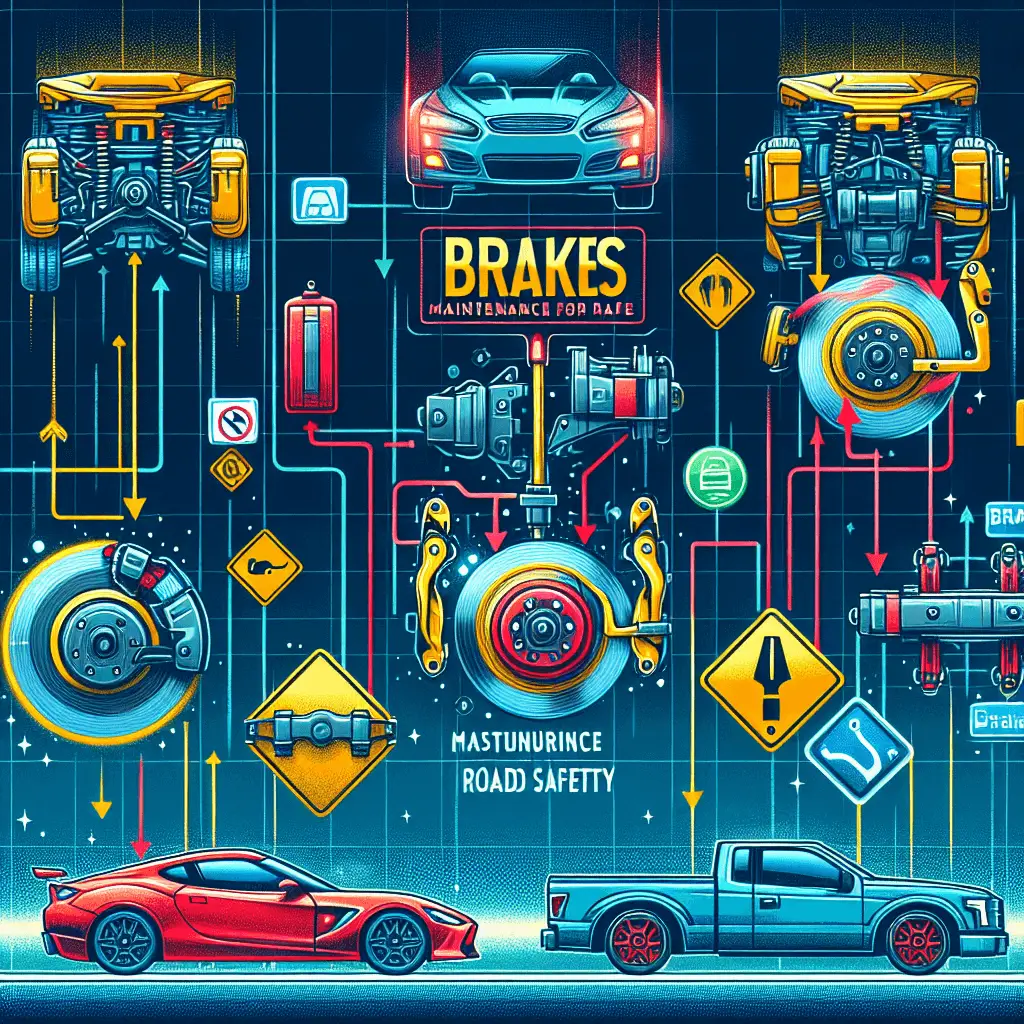The Importance of Regularly Checking Your Brakes
Taking care of your car is essential for both your safety and the longevity of your vehicle. One area that often gets overlooked is the brakes. Regularly checking your brakes is crucial to ensure they are functioning optimally and to prevent any potential accidents on the road. By being proactive and attentive to your brakes, you can save yourself from costly repairs and maintain the peace of mind that comes with safe and reliable transportation.

Understanding the Basics of Brakes
Components of a Brake System
When it comes to understanding the basics of brakes, it’s essential to familiarize yourself with the various components that make up a brake system. The main components include brake pads, rotors, calipers, and brake fluid. Brake pads are crucial for generating friction against the rotors, which causes the vehicle to slow down or stop. The rotors are the flat, metal discs that the brake pads clamp down on. Calipers house the brake pads and apply pressure to them when the brake pedal is pressed. Brake fluid is responsible for transmitting the pressure from the brake pedal to the calipers. Understanding how these components work together is key to comprehending the functionality of your brake system.
How Brakes Work
Now that you know the key components of a brake system, let’s dive into how brakes actually work. When you press the brake pedal, hydraulic pressure is created in the brake lines, which then gets transferred to the calipers. The calipers squeeze the brake pads against the rotors, generating friction. This friction slows down or stops the rotation of the wheels, bringing your vehicle to a halt. It’s important to note that brakes work on all four wheels simultaneously, ensuring proper balance and control. Understanding how brakes function helps you appreciate the importance of regular maintenance and inspections to ensure optimal performance.
Signs of Brake Wear
Squeaking or Squealing Noises
One of the most common signs of brake wear is the presence of squeaking or squealing noises when you apply the brakes. These noises typically occur due to a wear indicator embedded in the brake pads. When the brake pads become thin, the wear indicator rubs against the rotor, creating the high-pitched sound. If you notice these noises, it’s important not to ignore them. They serve as a warning that your brake pads are worn out and need to be replaced. Failing to address this issue promptly could lead to more severe brake damage and compromise your safety on the road.
Reduced Braking Power
Another clear indicator of brake wear is a noticeable reduction in braking power. If you find that your vehicle takes longer to stop or requires more pressure on the brake pedal than usual, it’s a sign that your brake system is not functioning optimally. This reduction in braking power can be attributed to various factors, such as worn brake pads, deteriorated rotors, or air bubbles in the brake lines. Regardless of the specific cause, it’s essential to address this issue promptly to ensure your safety and the safety of others on the road.
Importance of Regular Brake Checks
Ensuring Safety
The importance of regular brake checks cannot be overstated when it comes to ensuring your safety on the road. Your vehicle’s brakes are arguably the most crucial safety feature, as they provide you with the ability to slow down or stop when necessary. Regular brake inspections help identify any potential issues or wear before they become severe, reducing the risk of brake failure or accidents. By taking the time to have your brakes checked regularly, you can have peace of mind knowing that you are actively prioritizing your safety and the safety of others on the road.
Extending the Lifespan of Brake Components
Regular brake checks also play a vital role in extending the lifespan of your brake components. Identifying and addressing early signs of wear or damage can help prevent further deterioration or potential failures. For example, if only the brake pads are worn, replacing them promptly will prevent the rotors from sustaining damage. By catching these issues early on, you can avoid costly repairs and ensure that your brake system functions optimally for a longer period of time. Engaging in regular brake maintenance is an investment in the longevity of your vehicle’s braking performance.
Avoiding Costly Repairs
Addressing minor brake issues through regular inspections can save you from more expensive repairs down the line. For instance, if you ignore the squeaking or squealing noise caused by worn brake pads, the metal-on-metal contact can damage the rotors. Replacing the rotors is a more costly endeavor than simply replacing the worn brake pads. Regular inspections allow for early detection and prompt resolution of brake problems, helping you avoid unnecessary expenses and maintaining your vehicle’s financial value.
Understanding Brake Maintenance Intervals
Manufacturer Recommendations
To ensure that you adhere to the appropriate brake maintenance intervals, it is essential to consult your vehicle’s manufacturer recommendations. Every vehicle’s brake system may have different requirements, depending on factors such as the make, model, and driving conditions. These recommendations typically outline when to have your brakes inspected and when to replace specific components, such as brake pads and rotors. By following the manufacturer’s guidelines, you can ensure that your brake system receives the necessary attention at the right intervals, optimizing its performance and longevity.
Frequency of Brake Inspections
In addition to adhering to the manufacturer’s recommendations, it’s also crucial to consider the frequency of brake inspections based on your driving habits and conditions. If you frequently drive in stop-and-go traffic or encounter steep inclines or declines, your brakes may experience more stress and wear. Similarly, if you often carry heavy loads or tow trailers, your brakes may require more frequent inspections. Regularly monitoring and assessing your brakes will help you determine the appropriate frequency of inspections to ensure they are in top shape and ready to perform when needed.

Benefits of Regular Brake Inspections
Early Detection of Brake Issues
One of the significant benefits of regular brake inspections is the early detection of potential brake issues. By having your brakes checked at regular intervals, a professional can identify any signs of wear, damage, or malfunction before they become more severe problems. This early detection allows for prompt repairs or component replacements, minimizing the risk of sudden brake failures or accidents. Catching problems early on not only promotes safer driving but also helps maintain the overall reliability and performance of your brake system.
Prevention of Brake Failures
Regular brake inspections play a crucial role in preventing brake failures, which can have disastrous consequences. Brake failures can occur due to various reasons, including worn brake pads, malfunctioning calipers, or contaminated brake fluid. By having your brakes inspected regularly, these potential issues can be identified and resolved before they compromise your safety. Preventing brake failures ensures that your vehicle remains reliable and responsive when you need it most, giving you peace of mind on the road.
Importance of Brake Fluid Checks
Function of Brake Fluid
Brake fluid is a critical component of your vehicle’s brake system, and understanding its function is essential. Brake fluid is a hydraulic fluid that transfers the force from the brake pedal to the calipers, causing the brake pads to clamp down on the rotors. It operates under high pressure and high temperatures, making it necessary to maintain the appropriate fluid level and quality. Over time, brake fluid can become contaminated or degrade, compromising its performance and potentially leading to brake malfunctions. Regular brake fluid checks help ensure that your brake system operates smoothly and efficiently.
Signs of Contaminated Brake Fluid
Contaminated brake fluid is a significant concern when it comes to brake performance and safety. If you notice a decrease in brake responsiveness, a spongy brake pedal, or a darkened color in the brake fluid, it may indicate contamination. Brake fluid can become contaminated by moisture, dirt, or debris, which affects its ability to transmit hydraulic pressure effectively. Regular brake fluid checks allow for the identification of contamination and prompt flushing and replacement if necessary, restoring the optimal performance of your brake system.
Common Brake Problems
Worn Brake Pads
Worn brake pads are one of the most common brake problems encountered by vehicle owners. Brake pads naturally wear down over time due to the friction generated against the rotors. As they wear, the amount of pad material decreases, compromising the effectiveness of the brakes. It’s crucial to address worn brake pads promptly by having them replaced. Delaying replacement not only diminishes your vehicle’s braking performance but also increases the risk of damaging the rotors, resulting in additional repairs and costs.
Leaking Brake Fluid
Another common brake problem is a leaking brake fluid. Leaks can occur due to worn or damaged brake lines, deteriorated seals, or faulty brake calipers. If you notice any fluid pooling underneath your vehicle, especially near the wheels, it’s important to have your brake system inspected immediately. Leaking brake fluid not only reduces the effectiveness of your brakes but also poses a safety hazard. Identifying the source of the leak and resolving the issue promptly is crucial to maintaining the integrity of your brake system.
DIY Brake Checks
Visual Inspection
While professional brake inspections are highly recommended, conducting DIY brake checks can provide you with some initial peace of mind. A visual inspection can help identify obvious signs of wear or damage. Start by examining the brake pads through the wheel spokes. If the pads appear excessively worn, with less than a quarter-inch of pad material remaining, it’s time for a replacement. Additionally, check for any leakage around the brake lines or calipers, and ensure that the rotors are free from deep grooves or scoring. Remember, while a visual inspection can offer some insights, it’s essential to have a professional evaluation for a comprehensive assessment.
Test Drive
Another DIY brake check you can perform is a test drive. During the drive, pay attention to any unusual sensations or behaviors exhibited by your brake system. Does the brake pedal feel spongy or require excessive pressure to engage? Does the vehicle pull to one side when braking? These symptoms may indicate potential issues that warrant professional inspection. If anything feels off during your test drive, it’s best to schedule an appointment with a certified technician to evaluate your brakes thoroughly.
Importance of Professional Brake Inspections
Proper Evaluation of Brake Components
While DIY brake checks can provide initial insights, it’s essential to recognize the importance of professional brake inspections. Certified technicians have the expertise and specialized tools to conduct a thorough evaluation of your brake components. They can measure the remaining brake pad thickness accurately, assess the condition of the rotors, calipers, and brake lines, and identify any underlying issues that may not be immediately visible. Professional inspections ensure that your brakes are thoroughly examined, allowing for more accurate diagnostics and necessary repairs.
Expertise in Brake Repairs
In addition to evaluating your brake components, professional technicians possess the expertise and knowledge to perform brake repairs. Whether it’s replacing worn brake pads, resurfacing rotors, or addressing a leaking brake line, a certified technician can execute these tasks with precision and skill. Their expertise ensures that the repairs are done correctly, promoting optimal brake performance and safety on the road. By entrusting your brake repairs to a professional, you can have confidence in the quality of the work performed and the reliability of your brake system.
Conclusion
Regularly checking your brakes is of utmost importance to ensure your safety, extend the lifespan of brake components, and avoid costly repairs. By understanding the basics of brakes, recognizing the signs of brake wear, and comprehending the benefits of regular brake inspections, you can prioritize the maintenance and care of your brake system. Whether through DIY brake checks or professional inspections, staying proactive and attentive to your brakes will contribute to a more enjoyable and secure driving experience. Remember, your brakes are the lifeline of your vehicle, and investing time and effort in their maintenance is an investment in your safety.

